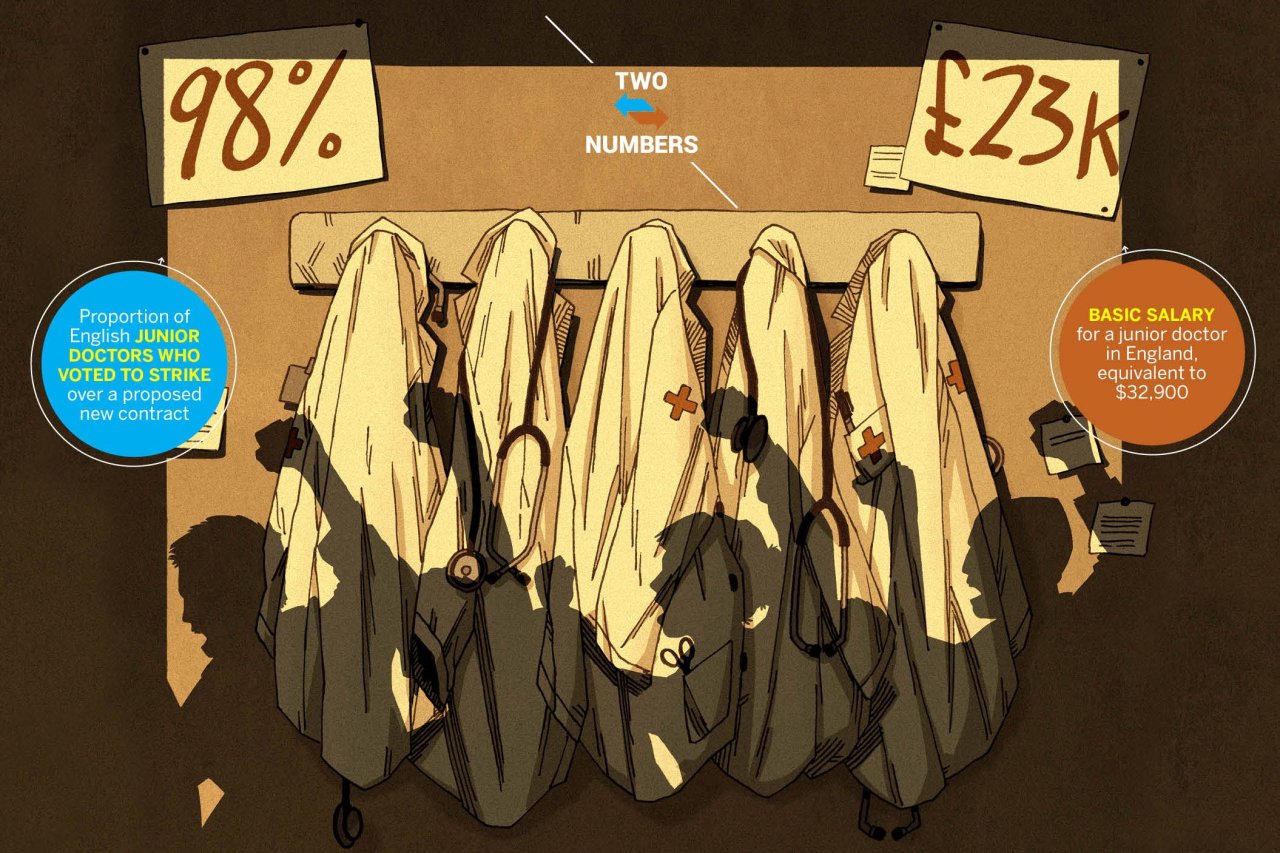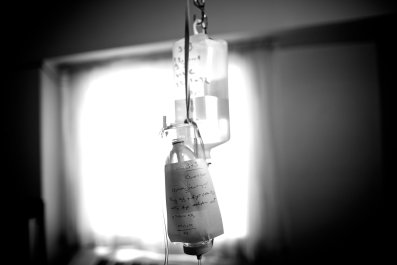Junior doctors in England start on a basic salary of a little under £23,000 ($32,900), so you'd think they'd be happy to be offered a pay raise of 13.5 percent. Not so fast. The government wants to change the way overtime is calculated in return, making most hours worked on Saturday normal hours rather than overtime—a move that would leave many of them losing out, the doctors say.
After they were asked to vote on a proposed new contract in November, 98 percent voted to strike. They've held two 24-hour stoppages this year, the first strike action by English doctors in 40 years. The latest, on February 10 and 11, led to the cancellation of 3,000 surgeries. The dispute has cast a spotlight on the way the National Health Service (NHS)—often cited as a source of pride for the country because it offers free health care for all—treats its staff. One recent poll showed 64 percent of British voters blamed the government, with just 13 percent faulting doctors.
There are about 45,000 junior doctors working in England. Under their present contract, they can work for a maximum of 91 hours in any seven-day period (this will fall to 72), and on average they are supposed to work no more than 56 hours a week (dropping to 48 with the new contract). The starting salary of almost £23,000 rises to about £28,000 ($40,100) in the second year, and the average salary for an English doctor in training is £37,000 ($53,000). Some trainees in hospitals are still classed as junior doctors in their 14th year of work. Those at the top of the scale can earn in excess of £70,000 ($100,300).
Health Secretary Jeremy Hunt has vowed to impose the contract without the agreement of the doctors, who have threatened more strike action. Critics of the government fear a "brain drain" to Australia and other countries that offer good opportunities for U.K.-trained doctors. On the day Hunt promised to impose the new contract, some 300 doctors applied for certificates that would allow them to move abroad, compared with an average of 26 a day earlier in February.
Others are considering quitting. "I have never considered leaving the NHS before," says Robyn Jacobs, a junior doctor, but "I'm not going to spend the next 10 to 15 years of my life beaten down and undervalued."



















